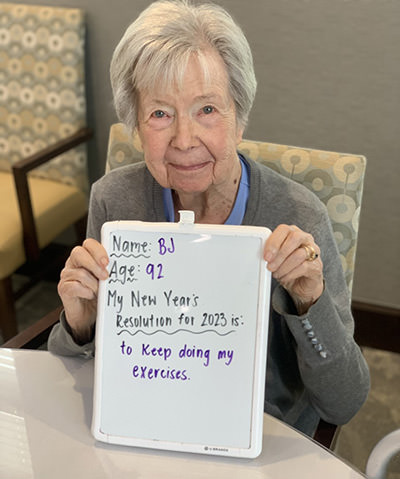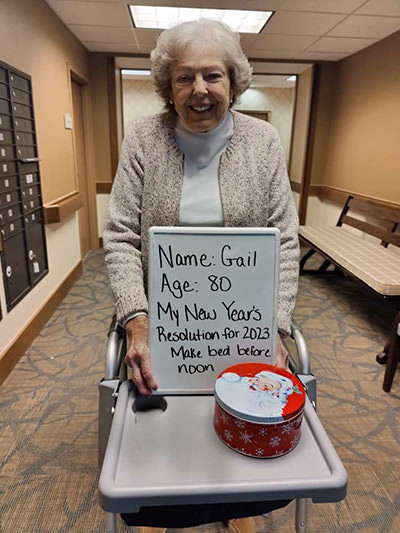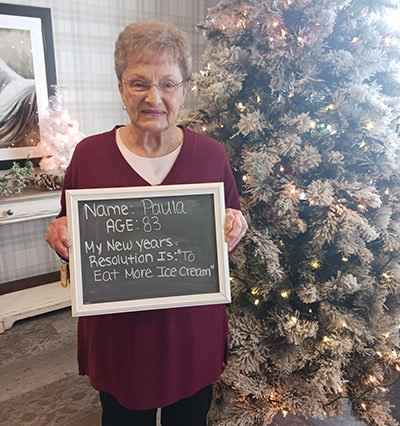New Year's Resolutions that Mean Something

How to Make Them and Keep Them
The idea of making New Year’s Resolutions is really a very optimistic act, especially if we document or share them with others. Like making a grocery list or itinerary of everything we want to find and do. There are plenty of lists out there to tell you what others are doing. But that’s not really what this is about. We’re interested in meaningful change.
But change is hard for most of us, right?
And so this annual litany of things we’d like to find and do and be begins. It’s optimistic, but it can feel overwhelming. And when we get overwhelmed, well, that’s why more than half of the people who make New Year’s Resolutions end up abandoning them after six months. Even when we know they’re good for us.
Maybe instead of more resolutions, one on top of the other and all in the interest of self-improvement, we should make better ones. Ones that feel personal.
WHAT MAKES A GOOD RESOLUTION?

What matters most to you? That’s where you should start.
“If you do it out of the sense of self-hate or remorse or a strong passion in that moment, it doesn’t usually last long,” says Dr. Michael Bennett, psychiatrist and author. “But if you build up a process where you’re thinking harder about what’s good for you, you’re changing the structure of your life, you’re bringing people into your life who will reinforce that resolution, then I think you have a fighting chance.”
It also helps to make sure you’re as specific as possible. So instead of saying you want to eat healthier, maybe you focus on adding more protein and fiber to every meal, then identify foods that would fit the bill and work them into your snacking and meals.
Or if you want to be more positive and grateful, rather than hoping you’ll feel that way each day, set aside 10 minutes each morning to think of two things you’re grateful for and something you want to accomplish. Even better, do this while you’re getting dressed or fixing breakfast, so you create a habit. Or write them down so you can come back to them.
HABITS OVER GOALS

“You do not rise to the level of your goals, you fall to the level of your systems.” You’ve probably heard of James Clear’s bestselling book Atomic Habits, his personal story of turning adversity into an opportunity to grow better incrementally.
A goal is good, but it can feel intangible and vague. A habit is automatic. It becomes part of your process, almost without thinking.
“Simple behaviors that can become habits that automatically help you achieve your goals make better resolutions than grandiose goals,” according to Christine Carter, Senior Fellow at The Greater Good Magazine, dedicated to science-based insights for a meaningful life, and author of The Sweet Spot: How to Find Your Groove at Home and Work and Raising Happiness
So what does this mean exactly?
Work these small, new behaviors into your daily routine. Cue them up by attaching them to something you already do: When I watch my show each day at 2pm, I’ll have a piece of fruit. After church on Sunday, I’ll call a loved one to catch up. When I’m getting ready for bed, I’ll put on relaxing music and do some stretching.
CHECK IN AND REWARD YOURSELF

According to research, it takes an average of about two months (66 days) to form a new habit, sometimes longer. Let’s assume it’s not going to be easy. If it came naturally, you’d already be doing it.
So, tell others about your resolution(s) to engage their support. And reward yourself along the way, even when (especially when) you have setbacks. Think of the way you would talk to and encourage a friend in the same situation.
Take notice of how you feel when you follow through, and when you don’t. You’ll start to see glimmers of change. Enjoy them! Then keep going.
WHERE WILL YOU START?
New Year’s resolutions are a good thing! We are never finished growing and changing, and focusing on things we can do to be healthier and happier is wonderful.
So where will you start?
Here are some common, general resolutions that you can use to get you going. Make them specific, personal and attach them to things in your routine to turn them into habits:
- Eat healthier. Be specific. And start with small swaps or changes.
- Stay connected to family and friends. Make a list of the people who are most important to you and how and when you will reach out.
- Stay active. Start small by adding more steps, stretching at bedtime or taking a class with a friend.
- Stay sharp. Do puzzles, play Words with Friends, start a book club.
- Get enough rest. Set and stick to a regular bedtime, remove distractions and stay off electronics an hour before bedtime, even schedule in a nap or two.
- Get organized. Tackle a drawer a day, have someone help you sort through photos and put them into albums, make a list of important documents, keep them in a safe place and tell someone you trust where to find them.
- Keep learning. Take a class or lessons, be curious about others or ask a younger person to do some reverse mentoring (e.g. your grandchild teaches you about technology and you share your travel experiences).
- Stay positive. Some days are easier than others. Stay close to good listeners and be one yourself. Keep a gratitude journal or whiteboard. Get some fresh air. Surround yourself with people, food and things you love.
We’re pulling for you!
Happy Holidays and here’s to a happy and healthy 2023! To learn more about the ways we encourage Traditions residents to live life to its fullest, please visit us online at Traditionsmgmt.net and find a community near you.





